Caring for Pet Rabbits
Welcome to our comprehensive guide to pet rabbits! Whether you’re considering bringing a bunny into your home or you already have one hopping around, this article will provide you with all the information you need to ensure the well-being of your furry friend. From understanding the unique characteristics of rabbits to their dietary requirements, exercise needs, grooming and hygiene, as well as healthcare and preventive measures, we’ll cover it all. So, let’s dive in and explore the wonderful world of pet rabbits!
Understanding Pet Rabbits
As adorable and gentle creatures, pet rabbits make wonderful companions for individuals and families alike. Whether you are a first-time rabbit owner or considering adding a rabbit to your existing pet family, understanding the basics of pet rabbits is essential.
There are numerous rabbit breeds to choose from, each with its own unique characteristics and appearances. From the compact and energetic Netherland Dwarf to the long-haired and majestic Angora, there is a breed to suit every preference. Researching different breeds can help you find the perfect match for your lifestyle and preferences.
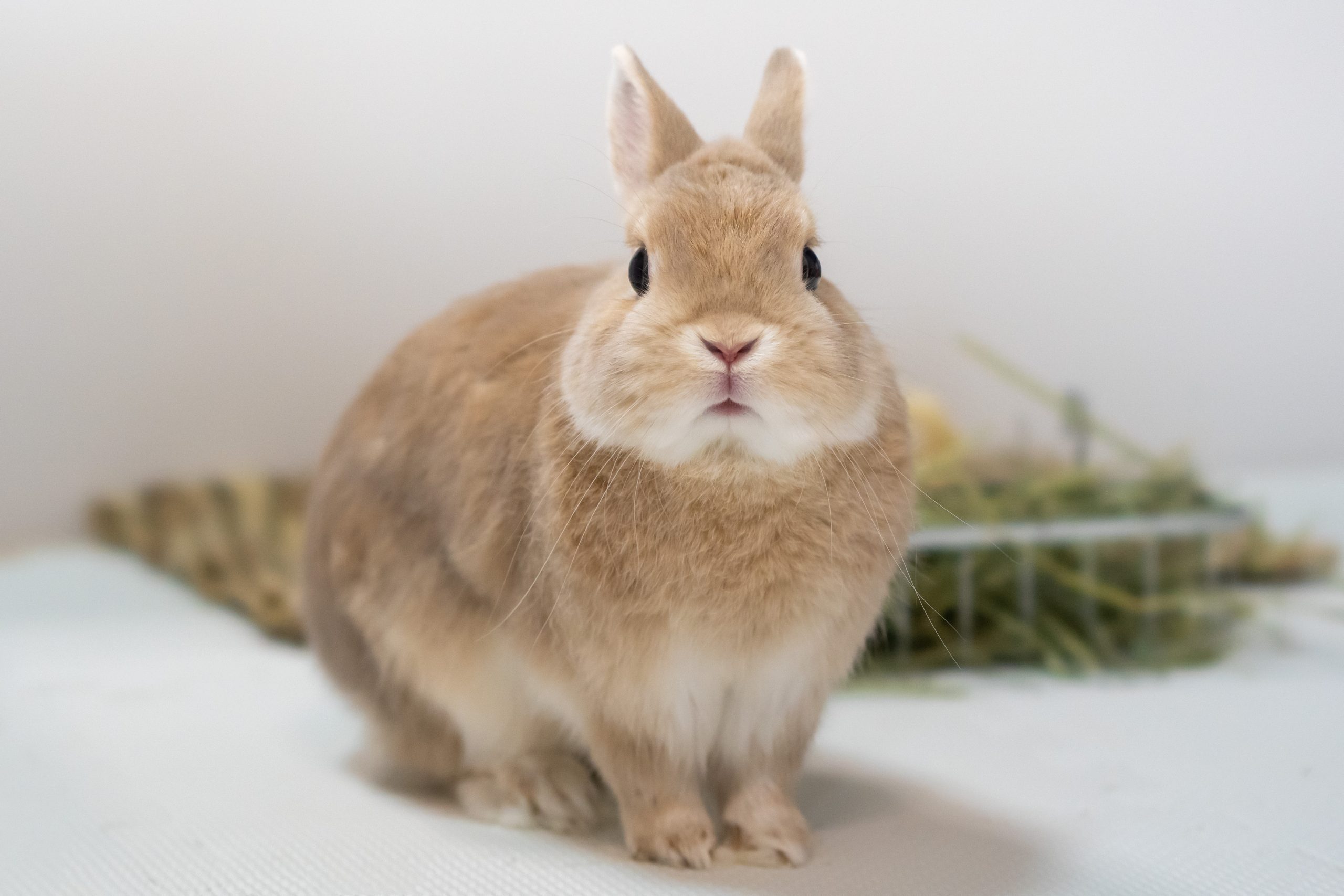
When it comes to behavior and temperament, rabbits are known for their curious and social nature. They are intelligent animals that thrive on mental stimulation and interaction. Many rabbits enjoy being petted and cuddled, but it’s important to remember that each rabbit has its own personality. Some may be more independent and prefer their own space, while others may crave constant attention.
Providing the right environment and care for your pet rabbit is crucial for their well-being. This includes a spacious enclosure with plenty of room to hop and play, a balanced diet of hay, fresh vegetables, and rabbit pellets, as well as regular veterinary check-ups to ensure their health.
At Best Friends Pet Care, we understand the unique needs of pet rabbits and provide the highest quality care and products. From rabbit-friendly toys and accessories to expert advice on rabbit care, we are here to support you in creating a happy and fulfilling life for your furry friend.
Preparing for a Pet Rabbit
Before bringing a pet rabbit into your home, it’s important to make sure you are fully prepared. From choosing the right rabbit to setting up a rabbit-friendly environment and gathering essential supplies, taking these steps will ensure a smooth transition and a happy life for your new furry friend.
Choosing the right rabbit:
When selecting a rabbit, consider factors such as size, breed, and temperament. Research different rabbit breeds to find one that matches your lifestyle and preferences. It’s also essential to find a reputable breeder or adopt from a rescue center to ensure the rabbit’s health and well-being.
Setting up a rabbit-friendly environment:
Rabbits need plenty of space to hop, stretch their legs, and explore. Provide a large, safe enclosure that includes a hutch or cage, as well as a separate area for exercise. Ensure the enclosure is secure, with no small gaps or potential hazards. Also, designate a quiet and peaceful area of your home for the rabbit to retreat to when needed.
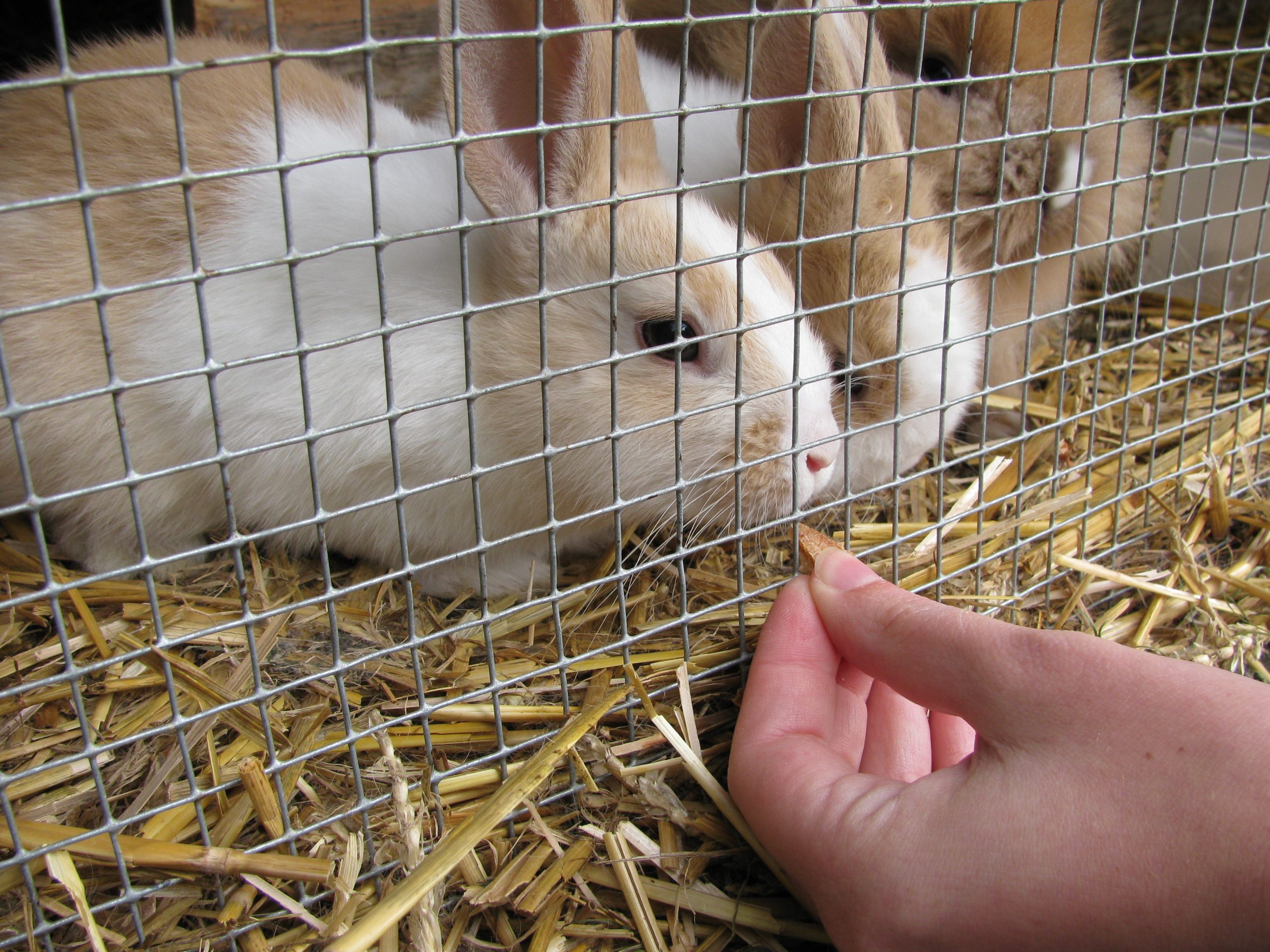
Essential supplies for rabbit care:
To properly care for your pet rabbit, gather the necessary supplies. These include a suitable litter box and bedding, a water bottle or bowl, a food dish, and appropriate toys for mental stimulation. Additionally, make sure to have a high-quality rabbit food that is specific to their dietary needs. Consult with a veterinarian to ensure you are providing the best nutrition for your rabbit.
Feeding and Nutrition
Feeding and nutrition play a crucial role in keeping your pet rabbit healthy and happy. Providing a
proper diet is essential for their overall well-being. Let’s explore some important aspects of feeding a pet rabbit:
Proper diet for pet rabbits:
Rabbits are herbivores, which means their diet should consist mainly of fresh hay, leafy greens, and a small number of pellets. Hay is an important component of their diet as it helps maintain healthy digestion and wears down their constantly growing teeth. Leafy greens like kale, spinach, and romaine lettuce provide essential nutrients. Pellets should be high in fiber and low in carbohydrates to prevent obesity.
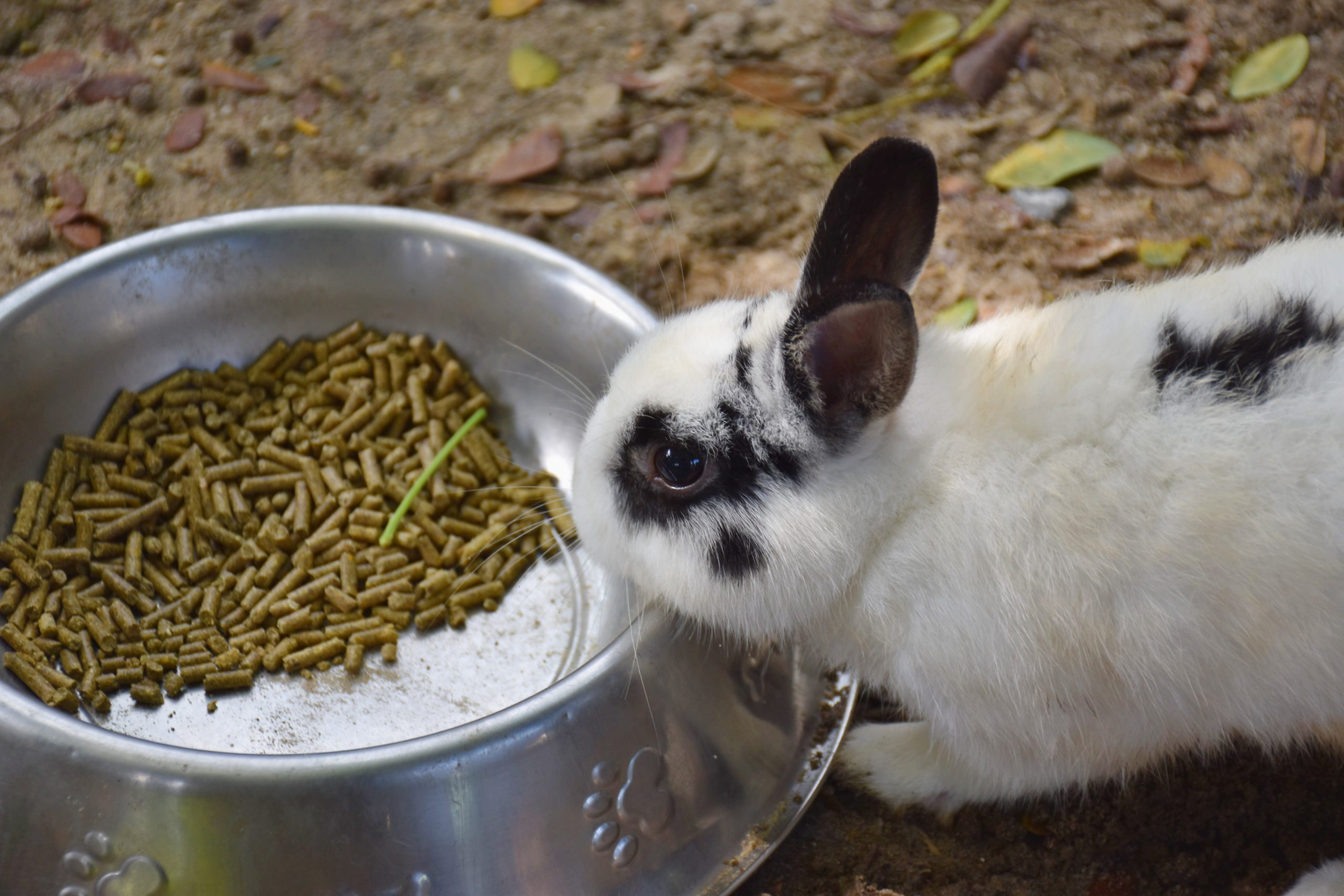
Safe and healthy treats for rabbits:
While treats can be a great way to bond with your pet rabbit, it’s important to choose them wisely. Avoid sugary or high-fat treats, as they can lead to digestive issues and weight gain. Instead, opt for safe options like small pieces of fresh fruits (in moderation), such as apples or berries. Remember, treats should be given sparingly and should not exceed 5% of their daily diet.
Importance of fresh water and hay:
Fresh water is essential for rabbits to stay hydrated. Make sure to provide clean water in a sipper bottle or a heavy ceramic bowl that cannot tip over easily. Along with water, hay should always be available. Hay not only provides nutrition but also keeps their teeth in good condition. Choose good quality, fresh-smelling hay and replace it regularly.
By following these feeding and nutrition guidelines, you can ensure that your pet rabbit receives a balanced diet, which promotes their overall health and longevity. Remember, always consult with a veterinarian for specific dietary requirements based on your rabbit’s age, breed, and health conditions.
Exercise and Enrichment
Exercise and enrichment are essential for the health and well-being of pet rabbits. By providing them with regular exercise and mental stimulation, you can ensure that they lead a happy and fulfilling life. Here are some tips on creating a rabbit exercise routine, providing mental stimulation, and selecting toys and activities:
Creating a rabbit exercise routine:
Rabbits are naturally active animals and need plenty of space to run, jump, and explore. Ensure that your rabbit has a large, secure enclosure where they can stretch their legs. You can also allow supervised free-roaming time in a rabbit-proofed area of your home or garden. Encourage exercise by providing ramps, tunnels, and platforms for them to explore.
Providing mental stimulation for rabbits:
Rabbits are intelligent creatures that thrive on mental challenges. To keep them mentally stimulated, provide them with a variety of toys and activities. Puzzle toys with hidden treats, cardboard boxes with holes to explore, and interactive toys that encourage movement are all great options. You can also rotate their toys regularly to keep things interesting.
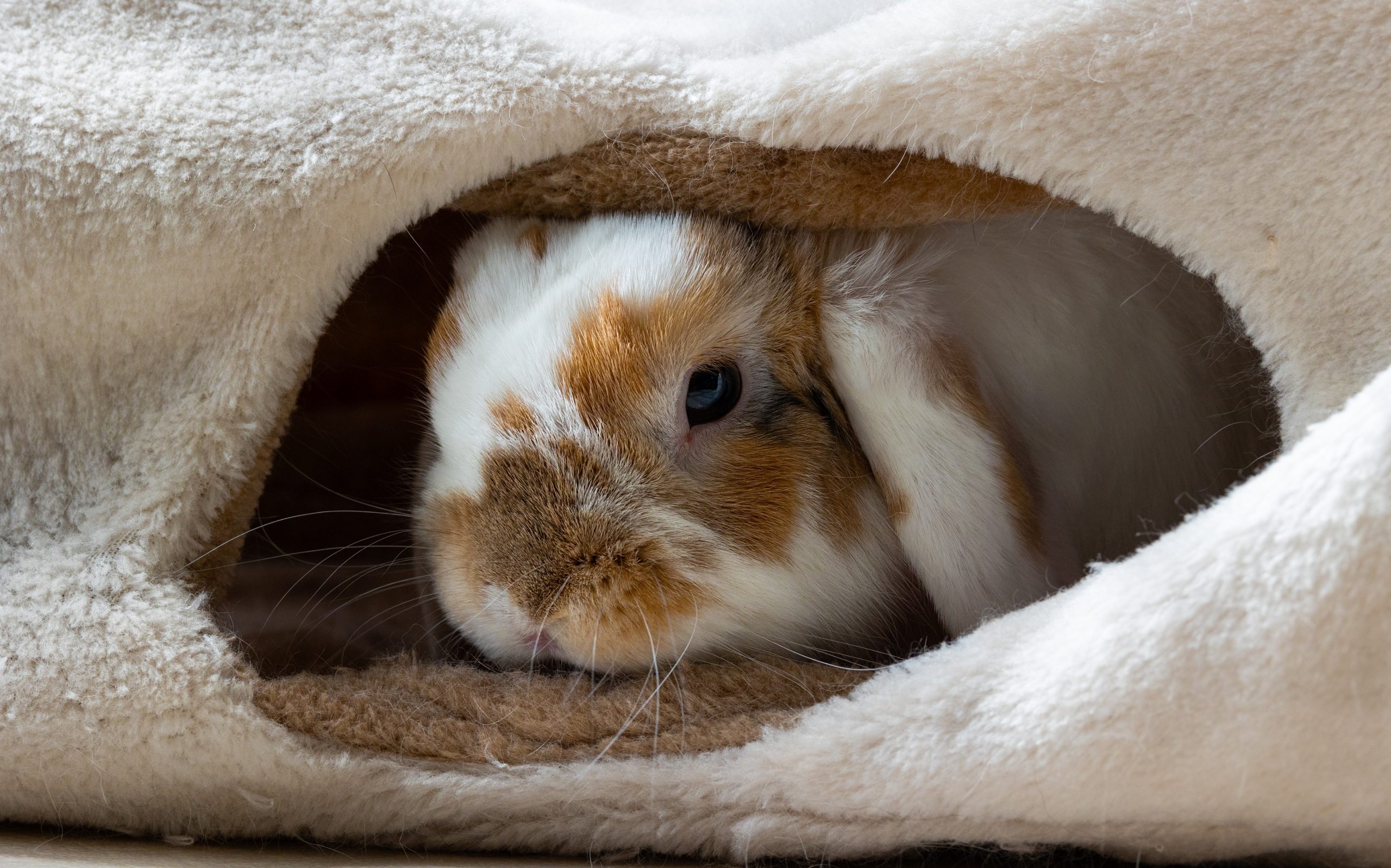
Toys and activities for rabbits:
When selecting toys and activities for your rabbit, choose ones that are safe and appropriate for their size and breed. Avoid toys with small parts that can be chewed off and swallowed. Some popular choices include chew toys, tunnels, balls, and treat-dispensing toys. Remember, each rabbit has its own preferences, so observe your rabbit’s behavior to see what they enjoy the most.
Grooming and Hygiene
Grooming and hygiene are essential aspects of caring for your pet rabbit. Regular grooming not only helps keep your rabbit’s coat clean and free from mats, but it also promotes bonding between you and your furry friend. Here are some important grooming and hygiene practices to keep in mind:
Brushing and grooming your rabbit:
Rabbits have delicate fur that requires regular brushing to prevent matting and remove loose hair. Use a soft brush or a rabbit-specific grooming tool to gently brush your rabbit’s fur in the direction of hair growth. This helps distribute natural oils and prevents hairballs. It’s also a great opportunity to check for any skin issues or parasites.
Maintaining proper hygiene:
Rabbits are naturally clean animals, but they still need your help to maintain their hygiene. Keep their living area clean by regularly removing soiled bedding and ensuring proper ventilation. Additionally, rabbits can be litter trained, which makes cleaning up after them much easier. Make sure to provide your rabbit with fresh water daily and provide a balanced diet to support their overall health.
Nail trimming and dental care:
Trimming your rabbit’s nails is crucial to prevent overgrowth, discomfort, and potential injuries. Use a pair of rabbit nail clippers and carefully trim the tip of each nail, avoiding the quick. Dental care is also important for rabbits as their teeth continuously grow. Provide chew toys and hay to help wear down their teeth naturally and schedule regular veterinary check-ups to ensure their dental health.
By incorporating these grooming and hygiene practices into your rabbit’s routine, you can help keep them happy, healthy, and looking their best.
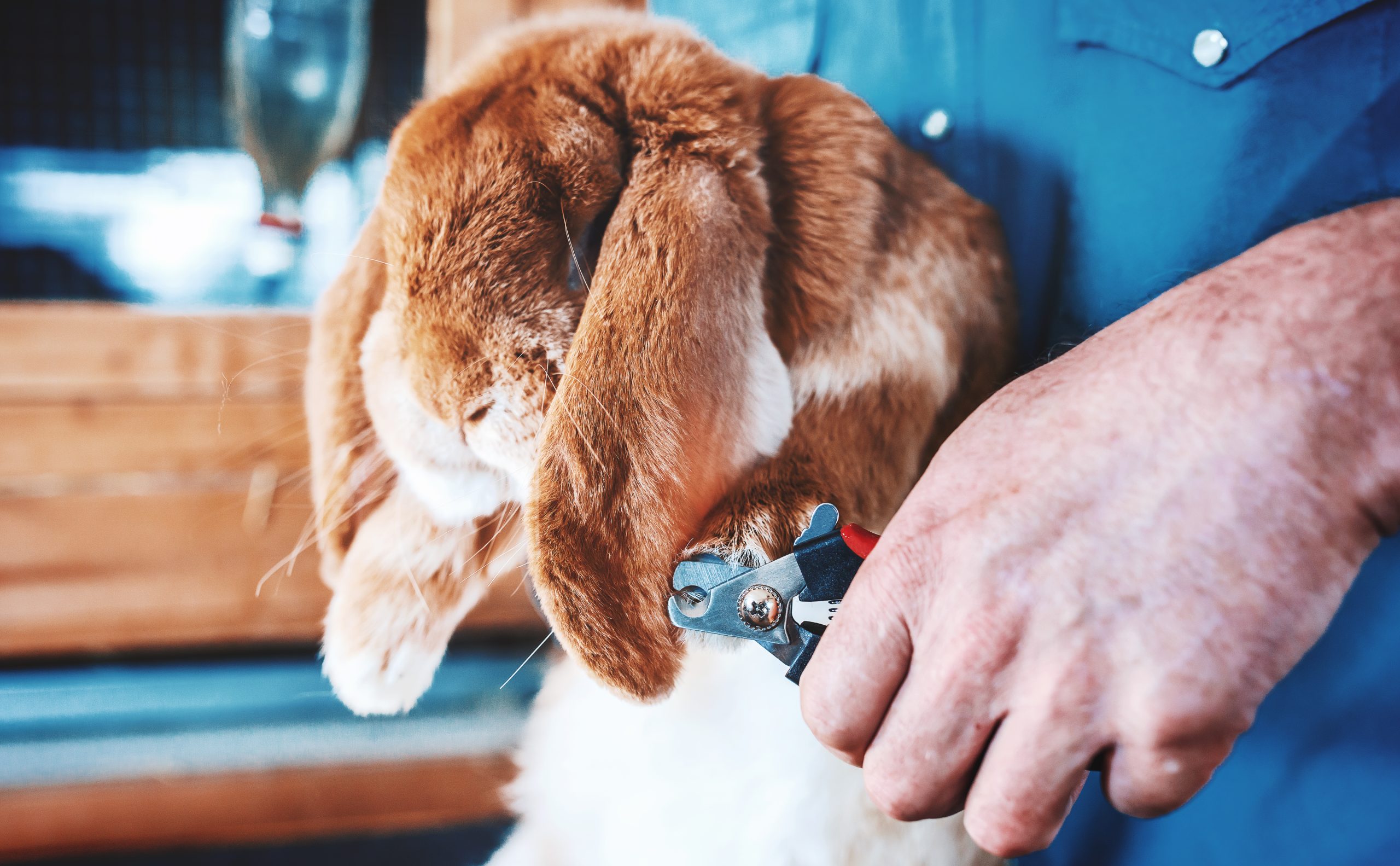
Healthcare and Preventive Measures
When it comes to keeping your pet rabbit healthy, there are a few important healthcare and preventive measures to consider. Here are some key topics to be aware of:
Finding a rabbit-savvy veterinarian:
It is crucial to find a veterinarian who is experienced and knowledgeable in treating rabbits. Rabbits have unique healthcare needs, so it’s important to find a professional who specializes in their care. You can ask for recommendations from other rabbit owners or search for a rabbit-savvy veterinarian in your area.
Vaccinations and regular check-ups:
Just like any other pet, rabbits require vaccinations to protect them against certain diseases. Regular check-ups are also essential to monitor their overall health and catch any potential issues early on. Your veterinarian will be able to advise you on the appropriate vaccination schedule and recommend regular check-ups for your pet rabbit.
Common health problems in rabbits:
Rabbits are susceptible to various health problems, and being aware of these issues can help you take preventive measures. Some common health problems in rabbits include dental issues, gastrointestinal stasis, respiratory infections, and parasites. Regular veterinary check-ups, a balanced diet, and a clean-living environment can help reduce the risk of these health problems.
By taking these healthcare and preventive measures, you can ensure that your pet rabbit stays healthy and happy. Remember, always consult with a veterinarian for personalized advice and guidance based on your rabbit’s specific needs.




